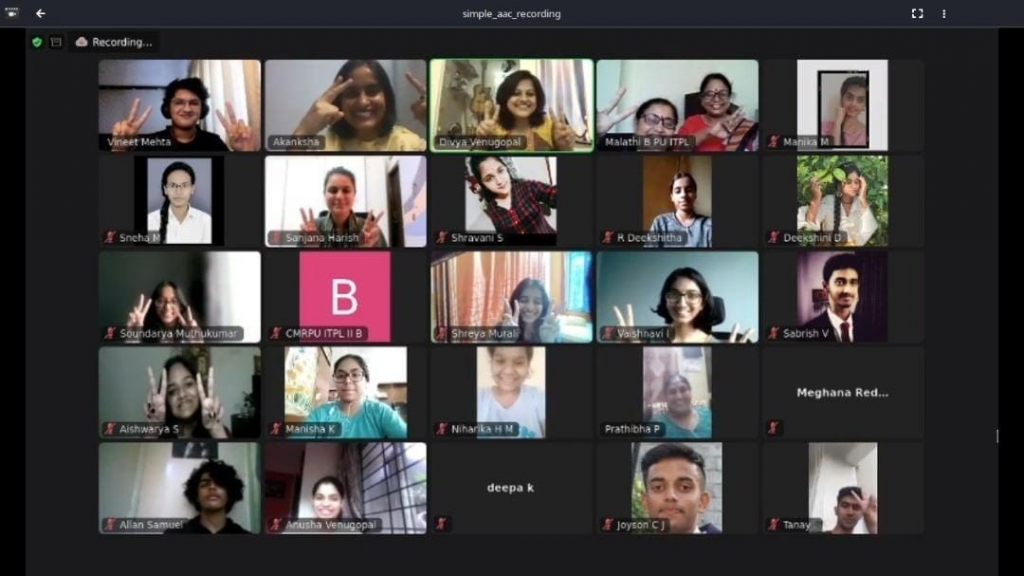We all want to succeed in life. We have countless ideas about what it means to be happy and successful. But sometimes we just need skills to help us get there.
“To live is to be musical, starting with the blood dancing in your veins. Everything living has a rhythm. Do you feel your music?”
A wonderful session was conducted on the 7th of July by CMR National PU College ITPL, it was a perplexing and informative session on the topic “ The power of music to reduce stress” by Ms. Divya Venugopal, a singer-songwriter and a practicing psychologist. She is also a certified music therapist, trained in Hindustani classical music, and has performed for more than four lakh people across 50+ locations all over the world.
This session was very soothing and informative and interesting. The session taught a lot about how music helps to cope up with stress and gives a very pleasant feeling. Ms. Divya explained how listening to music is a great thing and can change our mood in minutes in the whole session.
The soothing power of music is well-established. It has a unique link to our emotions, so can be an extremely effective stress management tool. Listening to music can have a tremendously relaxing effect on our minds and bodies, especially slow, quiet classical music. This type of music can have a beneficial effect on our psychological functions, slowing the pulse and heart rate, lowering blood pressure, and decreasing the levels of stress hormones. Music, in short, can act as a powerful stress management tool in our lives. Music can have a profound effect on both the emotions and the body. Faster music can make you feel more alert and concentrate better. Upbeat music can make you feel more optimistic about life. A slower tempo can quiet your mind and relax your muscles, making you feel soothed while releasing the stress of the day. Music is effective for relaxation and stress management.
As music can absorb our attention, it acts as a distraction at the same time it helps to explore emotions. This means it can be a great aid to meditation, helping to prevent the mind from wandering. Musical preference varies widely between individuals, so only you can decide what you like and what is suitable for each mood. But even if you don’t usually listen to classical music it may be worth giving it a try when selecting the most calming music.
When people are very stressed, there is a tendency to avoid actively listening to music. Perhaps it feels like a waste of time, not helping to achieve anything. But as we know, productivity increases when stress is reduced, so this is another area where you can gain vast rewards. It just takes a small effort, to begin with.
To conclude, the session was overall wonderful, and could not be more thankful to our principal Ms. Malathi ma’am, and the management for organising such an amazing and pleasant session which was indeed needed by many of us. Most importantly, very thankful to Ms. Divya for taking time out of her busy schedule to present the session for us.
By, Meghana Reddy, 2D II PUC, CMR PUC, ITPL



